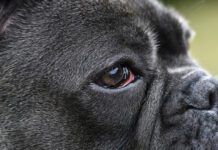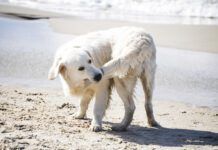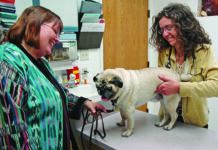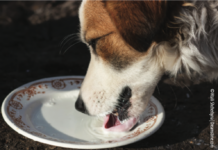Home Search
allergies - search results
If you're not happy with the results, please do another search
Chronic Bronchitis in Dogs
Irritation in your dog’s airways can cause her to cough, which may be due to a temporary illness or a more chronic issue.
Why Does My Dog Lick His Paws Raw?
If your dog is licking his paws red and raw, don’t ignore it. The problem is unlikely to go away on its own, but we have some remedies you can try on your own.
How to Choose a Dog Food: Factors to Consider
By applying the foregoing criteria, we’ve found a thousand or more good foods to choose from; their manufacturers appear on our “Approved Dry Dog...
Why Are My Dog’s Eyes Red?
The severity of red eyes in a dog depends in part on where the dog’s eye is red.
Why Dogs Chase Their Tails
Some dogs chase their tails when they are excited and some puppies bite their tails in play or frustration. Watching your dog chasing his tail is funny, but should you be worried?
What To Expect From Your Dog’s Check Up at the Vet
How often your dog should be seen by your veterinarian, and what sort of routine screening diagnostics should be conducted, are highly dependent on...
Can Dogs Drink Milk & Eat Dairy Products?
Many dogs enjoy and benefit from consuming milk and other milk-based foods without any ill effects. Follow these tips if you'd like to add dairy products to your dog's diet.
Whole Dog Journal’s 2019 Approved Wet Dog Foods
Canned dog foods represent only about 15% of the overall pet food market. Why don’t more people feed their dogs canned food? It has...
Switching Dog Foods
This article is a sidebar to our post "Diet, Dogs, and DCM", which appeared in the November 2019 issue
If this is the first you’re...
Chronic Ear Infections in Dogs: What You Need to Hear
Given that itchiness" is the most common reason for veterinary visits
When to Worry About Your Dog’s Runny Nose
It's that time of year again. Runny noses and sneezes abound for us humans, as new plants bloom in the fall. But did you know that your dog can suffer a runny nose too? Dog runny noses are more correctly called nasal discharge. It can run the gamut from clear and watery to thick and purulent. The appearance and frequency of nasal discharge in dogs can tell you much about the underlying cause.
Houseguest Etiquette for Dogs
Those of us who love dogs tend to assume that everyone else in our circle of friends and family does, too. Sadly, that's not always the case. In fact, even those who do share our passion for canine companions don't always appreciate the over-enthusiastic attentions of a happy hound, especially when they are trying to enjoy the company of human friends in the comfort of a private home. Whether you are a visitor bringing your own beloved dog with you to someone else's house, or a host greeting friends at your own front door with your canine family members milling about your feet, here are some tips to help you make sure your dog/human visits go well.













